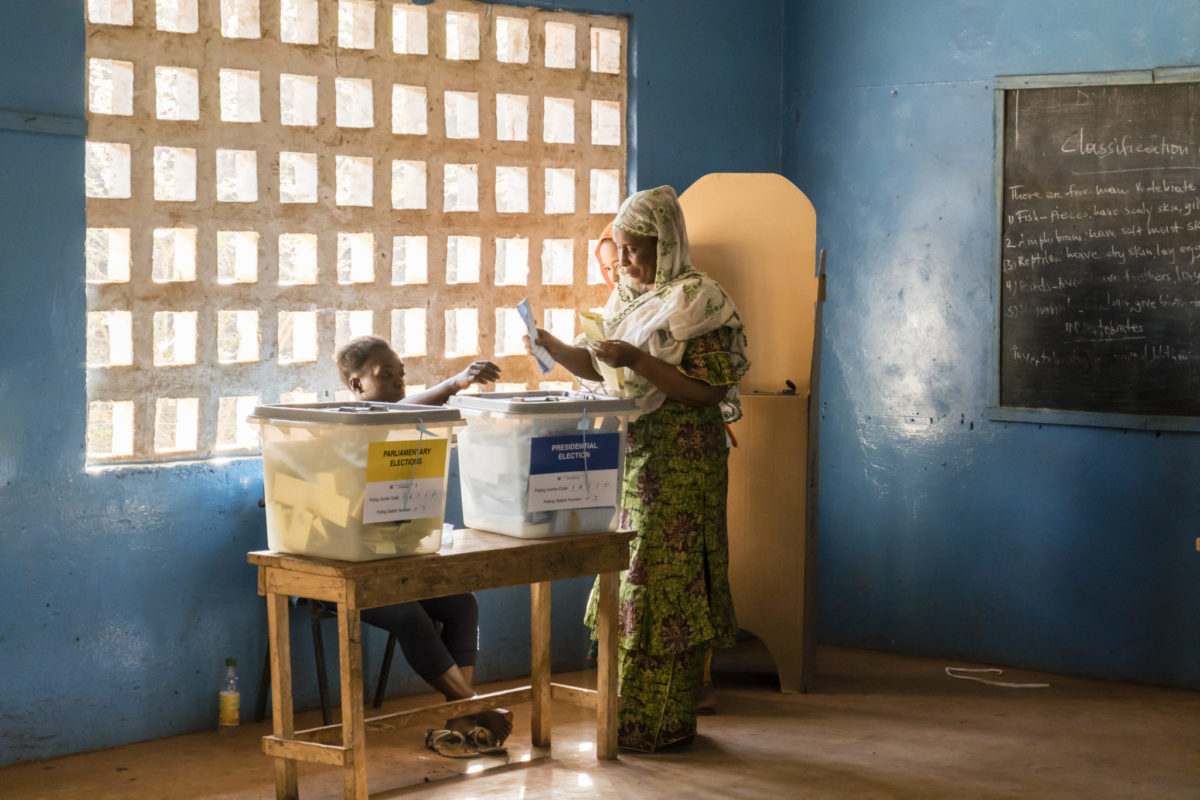Making elections more democratic in Sierra Leone

Sierra Leone Elections. Credit: Carol Sahley/USAID
In response to research, Sierra Leone’s major political parties may change their constitutions to make Parliamentary candidate selection more democratic.
CEGA Affiliate Katherine Casey (Stanford) partnered with both major political parties in Sierra Leone to conduct a novel randomized experiment, varying how much input registered voters have in selecting candidates for the 2018 Parliamentary elections. In the status quo, party officials, instead of voters, choose potential candidates to run for Parliament in Sierra Leone (and elsewhere).
In a random subset of primary Parliament races, researchers helped the parties implement a new way to select candidates. This included i) a party convention and policy debate that was broadcast over radio; followed by ii) polling of voters about their preferred candidates, which was shared with party officials in a report.
Results show that learning which candidates voters prefer in primary races increased representation (defined as the candidates selected by the party being those preferred by voters). Party leaders were not well informed about which candidates voters prefer: while 90% of party leaders assumed that voters agreed with their most preferred candidate, only 55% of these preferred candidates were also voters’ top choice. In 34% of races, not a single party leader correctly guessed local voters’ first choice candidate when surveyed. In races still following the status quo primary process, party officials selected the candidate that the voters preferred only 39% of the time. In races with the new system, the rate at which party officials selected the candidate that voters preferred increased to 63%.
Both the sitting president and the presidential flag bearer for the opposition party (now ruling party) endorsed this project. Highly ranked officials from political parties have appreciated the initiative and requested to extend it to the entire country. Officials from both parties have also expressed interest in using this approach as standard practice in the selection of candidates.
This research has sparked interest in using debates to select more representative candidates for other positions (city mayors, local councillors, member of parliaments, and presidential flag bearers)—both in Sierra Leone, and other countries in West Africa.
The study was funded as part of the Economic Development and Institutions (EDI) Programme funded by UK Aid.
Photo: Sierra Leone Elections, Credit: Carol Sahley/USAID

